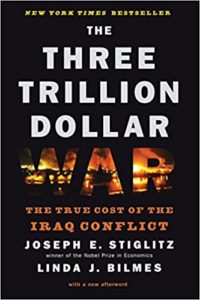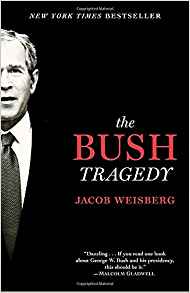
Serious Book Highly Recommended, July 1, 2008
Joe Bageant
Senator Obama may or may not have read this book. It's author does open with the observation that life is so hard among the white poor and working poor that they seek solace in beer, overeating, Jesus, and guns. This is, however, a very serious book, a first-hand deep look into the hearts and minds of the 60% of the country that cannot control its lifestyle, environment, pay check, or future.
Early on I note that the author appears to combine both education and common sense. There are magnificent turns of phrase throughout.
My fly-leaf notes:
+ Parallel world to that of the educated urban liberals
+ Life runs from complete insecurity to looming job insecurity
+ Just over half the poor in the US are white and this is the only group that is growing in number
+ For someone earning $8 an hour, if nothing goes wrong, they have $55 a week for groceries, gas, and incidentals
+ Insurance can cost as much as rent or mortgage
+ One third of working Americans make less than $9 an hour
+ They are inherently anti-union, facts are irrelevant, Christian radio is their primary source of information and viewpoint
+ This is a permanent underclass, two out of five have no high school diploma while all over 50 have major health issues, and low to no credit
+ The leftist middle class does not realize that this group votes right in part out of a feeling of revenge
+ Right owns the bars, the non-Internet real world
+ Left lost the middle when they demonized guns and gun owners–70 million gun owners, 200 million guns, guns are used to protect 60 times more often than they are used to attack
+ Superb multi-page discussion of whitetrashonomics and the trailer mortgage scams
+ Fundamentalists are superbly organized, home schooling leads to select colleges where political indoctrination is part of the deal
+ Sense of Rapture and Left Behind is very real within this group
+ Excellent discussion of how health “non-profits” are a real-estate valuation scam that serve only the well-off and not the poor
+ Television and petroleum have defined us
The author makes it a point to quote and point to a dirty dozen books that he drew on, but overall this is an essay from the heart with a great deal of intellect and a great deal of discipline in the presentation.
I highly recommend this book to both moderate Republicans wondering where their Party went off the rails, and to moderate leftists and to libertarians wondering how best to reconnect to what appears to be a very angry, down-trodden, unheard and unseen majority.
The most compelling insight for me from the author centered on his description of small towns across America, but especially in the South including Virginia, where a network of “elites” controlled the bank, newspaper, city hall, zoning board, and so on. As the author describes it, these fiefdoms and their masters are all too eager to cut deals with corporations and make money off the resulting land transactions, while not spending money on education, localized health care, or anything that might elevate the “local poor” to a point where they might understand the value of unions or tenant boards.
I experienced one major personal insight in reading this: the author takes great care to point out that most members of this group do not read, period. No books, no newspapers, barely use the Internet (except for NASCAR) and–this is the insight–have great disdain for those of us who have the “luxury” of sitting around and reading (not real work, that). This book and this author really communicated to me how little value my education and reading has in this context–what is needed is a long-term hands-on strategy for educating all the people all the time, and that is something neither the Democrats nor the Republicans appear willing to fight for, which is sad, since Thomas Jefferson said so clearly that a Nation's best defense is an educated citizenry.
Other books I recommend (and have reviewed):
The Global Class War: How America's Bipartisan Elite Lost Our Future – and What It Will Take to Win It Back
The Battle for the Soul of Capitalism
The Working Poor: Invisible in America
Nickel and Dimed: On (Not) Getting By in America
Off the Books: The Underground Economy of the Urban Poor
Left Hand of God, The: Healing America's Political and Spiritual Crisis
Breach of Trust: How Washington Turns Outsiders Into Insiders
Running on Empty: How the Democratic and Republican Parties Are Bankrupting Our Future and What Americans Can Do About It
The Manufacture Of Evil: Ethics, Evolution, and the Industrial System
DVD (links poverty and military recruitment):
Why We Fight









